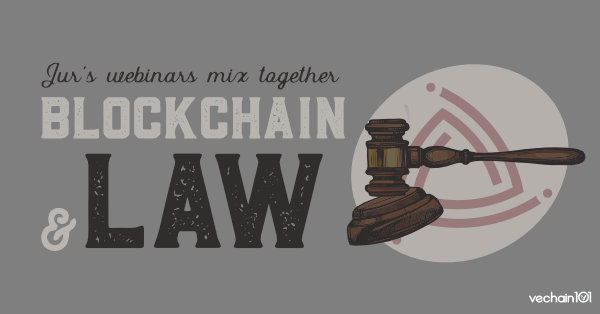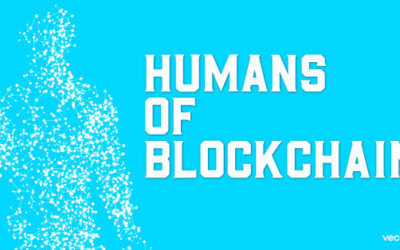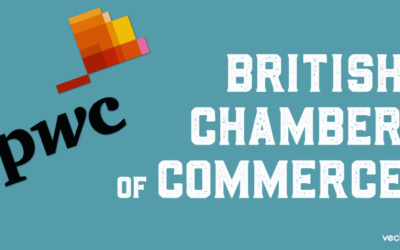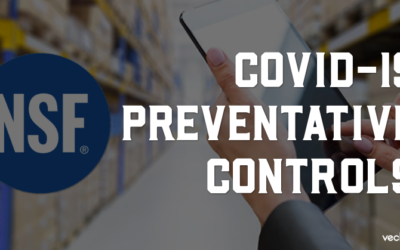Since the COVID-19 outbreak, the Jur team has been relatively quiet on the PR side, claiming a focus on developing out the court hubs of their dispute resolution platform. Decentralized dispute resolution will allow blockchain-based voting on commercial disputes, such as contracts, freelance agreements, and mediation cases, among others.

On April 29th, the Jur team hosted their first ever online webinar, introducing the main concepts of the technology to a noticeably large audience of legal professionals and community members. Alice Namuli, who founded the Legal Innovation Hub in Uganda, was also a part of the presentation to talk about how the continent of Africa was approaching this topic. She helped Jur organize the event in collaboration with the Africa Innovation Law & Tech Academy, the East Africa Law Society, and LEX Africa, which is the continent’s largest legal alliance. The audience, with many members from the aforementioned legal organizations, peppered the speakers with intelligent questions tackling all phases of adoption as well as the potential societal impacts blockchain and smart contracts could have.

From the onset, it was obvious that this audience was different from most other blockchain events. They took an avid interest in Chief Legal Officer Raffaele Battaglini’s presentation on smart contracts, and engaged Legal Engineer Luigi Cantisani on issues of human rights and the internet. The speakers pointed out how access to internet was quickly becoming a basic human right in the eyes of many governments, which should pave the way for technology to become a foundation of worldwide justice systems. They also discussed the need for trustless oracles to be the touchpoint between real-life and the internet, leading to more complete data and fairer rulings.
A lot of questions centered around the enforcement of online dispute resolution, as people might not be so quick to comply with a ruling delivered over the internet. Cantisani addressed this by talking about how this required the embedding of smart contracts into ODR and escrow services. On the Jur platform, after a dispute is resolved, funds will be transferred automatically, making non-compliance a non-issue.
CEO Alessandro Palombo gave the active audience a definition of a dApp, and talked about how these could impact economic business relationships. Palombo is a big believer in the the power of decentralization, explaining how many apps and services will shift to this model in the future, cutting out middlemen, reducing corruption, and lowering costs in the process.
CMO Federico Angeloni moderated the event and was impressed with the turnout. “We were pleasantly surprised by the very warm welcome that the African audience has reserved for us. In a flash, we realized the topicality of the problems we carry out and we can’t wait to expand the reach of our events to get more and more professionals interested in legaltech.”
The issue of cryptocurrency
One issue of keen interest to the VeChain community revolved around the topic of the JUR token and stablecoins. A question from audience member ‘Jeremy’ asked how the platform intended to handle volatility, and whether or not stablecoins would be used. Jur’s CTO Luca Daniel responded by stating:
“In the legal industry, there is a huge need to be user-friendly with as little friction as possible. If you want to submit a case to one of the hubs on the Jur platform, you need to be able to do that with your fiat currency. What the platform will do under the hood is translate and convert your normal currency into JUR tokens. You won’t be able to see that, unless you want to dig deeper and see the exchange rate that was applied. You don’t need to know how to manage a wallet or know how blockchain works. If you are a blockchain expert and want to dig deeper, you can see the transaction of course, but that’s our approach.”
“With regard to the volatility, it won’t matter if the price fluctuates, if I pay the dispute fee of $3,000 dollars, that’s going to be $3,000 today, and $3,000 dollars tomorrow. The system will do the conversion of the tokens. On the other hand, that point you made about a stablecoin is essential when talking about an escrow. When you have an escrow and are in a commercial relationship with another party, you need to transfer money from one end to the other, and you do that with a smart contract, it’s very important that the money escrowed is in a stablecoin.”
It’s no secret that a stablecoin is needed on the VeChain network, but it remains to be seen how that is put into place. In the past, the speculation surrounded a Euro-based stablecoin, as part of VeChain’s close connections with regions like San Marino and Italy. While that speculation has cooled off of late, knowing that Jur is planning on using one may be an indication that the plan is still in place.
Legaltech in Africa
Last to take the stage was guest host Alice Namuli. She mentioned that in Africa, legaltech adoption falls into two categories: Legal technology that enhances the way law firms deliver services, and technology that improves citizen’s access to justice. She noted that most law firms are adopting various technologies to ensure that they deliver timely services and to ensure they cut down their costs.

Alice Namuli side-by-side with Jur CEO Alessandro Palombo
“So many big law firms in the last 3 or 4 years have also caught up and are now using all kinds of products ranging from simple AI to advanced AI. On the continent, we have many legal innovators who are building tools, platforms, and systems. The biggest disadvantage is that many people don’t know about them so it becomes a little bit difficult to use them.”
“On the access to justice side, services range from ensuring that as many people on the continent are able to access justice and making the legal justice system more transparent and less costly. That’s why I’m very interested in platforms like Jur, but we don’t have anything on the continent yet like Jur. The biggest challenge we have now is that many lawyers haven’t been able to fully appreciate this [legal technology platforms], and they are either rejecting them or they are just not willing to adopt them. So many people have been denied justice because of the backlog or because our justice systems just don’t work at all. So we are very interested in the alternatives. We are very pleased to have this training or session [The Jur Webinar] where we can learn about what’s available and how we can use them.”


The feedback in the chat box shows that Jur has the ability to engage and connect with their legal audience
Final thoughts and key takeaways
For many regions, the issue of how small and medium law-firms can get access to affordable tools is a major question. Unlike many legaltech platforms for large law firms that come with a exorbitant licensing fee, platforms like Jur are much cheaper to use. The nature of Africa’s many different legal systems shows a huge potential use case for blockchain, a way to bypass the slow, costly, and even corrupt traditional courts. It’s one area where Jur can not only gain traction, but can also provide a much-needed social service that benefits less fortunate regions. It would be refreshing to see an instance of blockchain used for this cause, and could bring a lot of exposure and goodwill to the blockchain industry as a whole. It’s clear from the webinar that Jur has a professional team with a product that resonates with the legal community, and not just the cryptocurrency community and token holders. The challenge for Jur now will be on execution, to actually make this idea a reality.
To watch a replay of the webinar, head on over to YouTube: Link.






